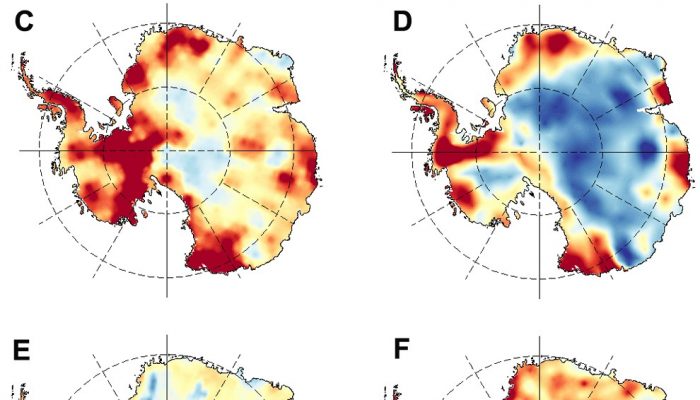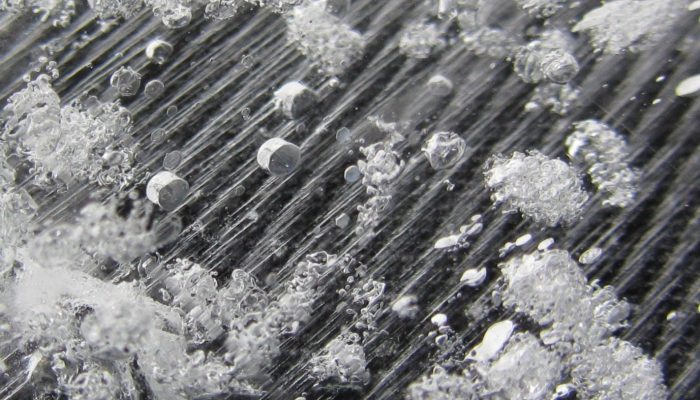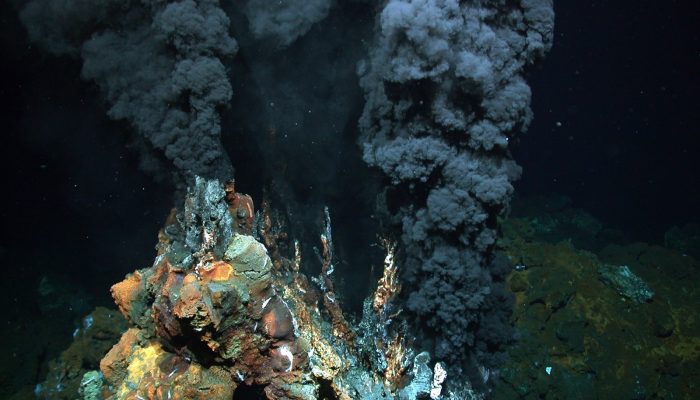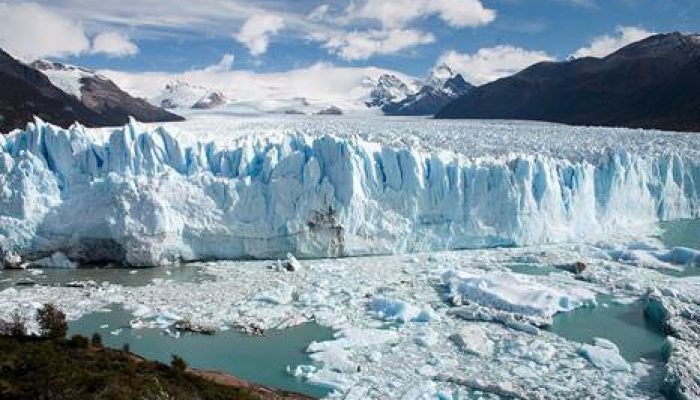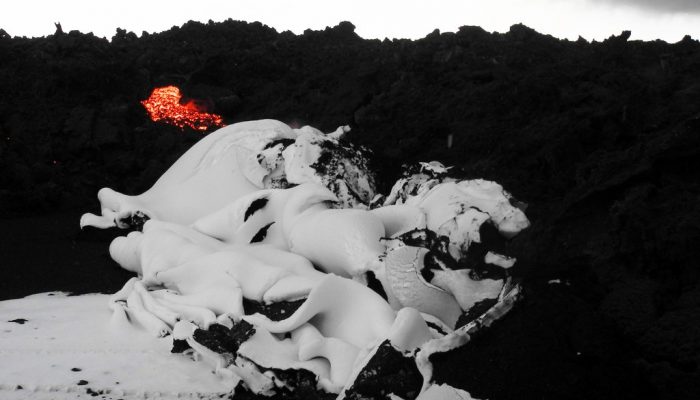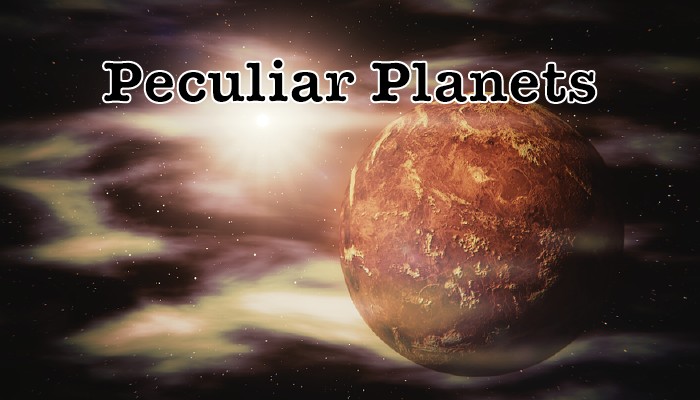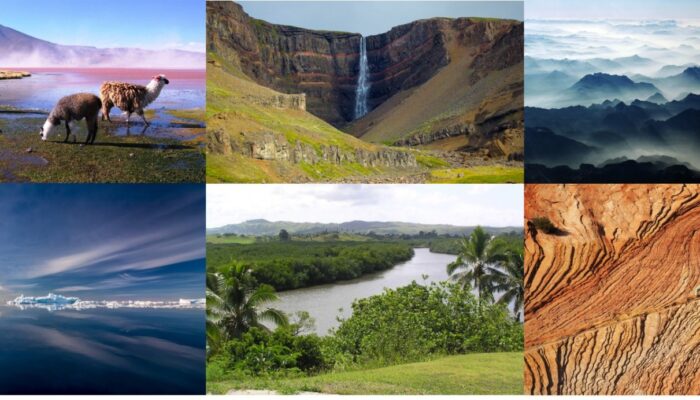“On the 8th of June 1783, at Whitsun, there gushed forth from the mountains behind the summer pastures a fire which devastated land, cattle and humans with its effects, both nearby and far away”, wrote Reverend Jón Steingrímsson of Kirkjubæjarklaustur in his autobiography [2]. The “fire” which welled up from a volcanic fissure now known as Lakagígar (the craters of Mount Laki) was the biggest floo ...[Read More]
If you didn't find what you was looking for try searching again.
GeoLog
At the Assembly 2018: Tuesday Highlights
Welcome back to the second day of the 2018 General Assembly! Today is packed full of excellent sessions, and this list of highlights is by no means comprehensive! Make sure you complement this information with EGU Today, the General Assembly newsletter, to get the most out of the conference – grab a copy on your way in or download it here. Union-wide Events Today’s Union-wide session highlig ...[Read More]
Cryospheric Sciences
Image of the Week – Geothermal heat flux in Antarctica: do we really know anything?
Geothermal heat flux is the major unknown when we evaluate the temperature and the presence/absence of water at the bed of the Antarctic Ice Sheet. This information is crucial for the Beyond Epica Oldest Ice project, which aims to find a continuous ice core spanning 1.5 million years (see this previous post). A lot of work has been done* to determine geothermal heat flux under the entire Antarctic ...[Read More]
Cryospheric Sciences
Image of the Week – Broccoli on Kilimanjaro!
On the plateau of Kilimanjaro, Tanzania, the remnants of a glacier can be found and the ice from that glacier contains a rather interesting feature – Broccoli! Not the vegetable, but bubbles that look a lot like it. Our Image of the Week shows some of these strange “Broccoli Bubbles”. Read on to find out more about where these were found and how we can see them. There is not much ice left on the m ...[Read More]
WaterUnderground
Happy birthday plate tectonics!
Post by Elco Luijendijk, a junior lecturer, and David Hindle, lecturer and head of geodynamic modelling, both at the Department of Structural Geology and Geodynamics at the University of Göttingen, in Germany. _______________________________________________ As we’ve firmly moved into 2018, we can say happy 50th birthday to one of the most revolutionary scientific theories of the last century: plat ...[Read More]
WaterUnderground
A cool new collectible: Water
Post by Matt Herod, Waste and Decommissioning Project Officer for the Canadian Nuclear Safety Commission, and Adjunct Professor in Earth and Environmental Science at the University of Ottawa, in Ottawa, Canada. _______________________________________________ I have always been a mineral and fossil collector. It was a hobby that stuck and blossomed into a career. I still collect minerals and fossil ...[Read More]
Geomorphology
Do glaciers really do all the work? Perhaps not.
Kerry Leith from the Engineering Geology Department at the ETH Zürich set up a post on their latest publication and the backstory behind it. As they announced on their own website (www.stressdriven.com) review comments ranged from “mediocre or poor” to “[…] provocative, potentially revolutionary (if correct) analysis”. It surely contains interesting thoughts. – ...[Read More]
GeoLog
Imaggeo on Mondays: Snow folded by advancing lava
The photograph shows the interaction of the first snow and an active lava flow during the 2014 / 2015 Holuhraun eruption in Iceland. The first snow fell onto a ground covered by fine black ash on 26 September 2014. While the meter thick lava flow advanced a few meters per day, it neither melted the snow nor flowed on top of it. Instead, it pushed a layer of centimetre-thick snow and millimetre-thi ...[Read More]
Geodynamics
From hot to cold – 7 peculiar planets around the star TRAPPIST-1
Apart from Earth, there are a lot of Peculiar Planets out there! Every 8 weeks, give or take, we look at a planetary body or system worthy of our geodynamic attention. When the discovery of additional Earth-sized planets within the TRAPPIST-1 system was revealed last year, bringing the total to 7 planets, it captured the minds of audiences far and wide. This week, two of the authors from a 2017 Na ...[Read More]
GeoLog
Imaggeo on Mondays: The best of imaggeo in 2017
Imaggeo, our open access image repository, is packed with beautiful images showcasing the best of the Earth, space and planetary sciences. Throughout the year we use the photographs submitted to the repository to illustrate our social media and blog posts. For the past few years we’ve celebrated the end of the year by rounding-up some of the best Imaggeo images. But it’s no easy task to pick which ...[Read More]

![Fire, Fog, Frost, Famine – French Revolution? The Lakagígar eruption in Iceland, 1783-1784 [Part 1]](https://blogs.egu.eu/divisions/gmpv/wp-content/blogs.dir/19/files/2018/05/Figure1_southwestern_fissure_edit-700x400.jpg)

